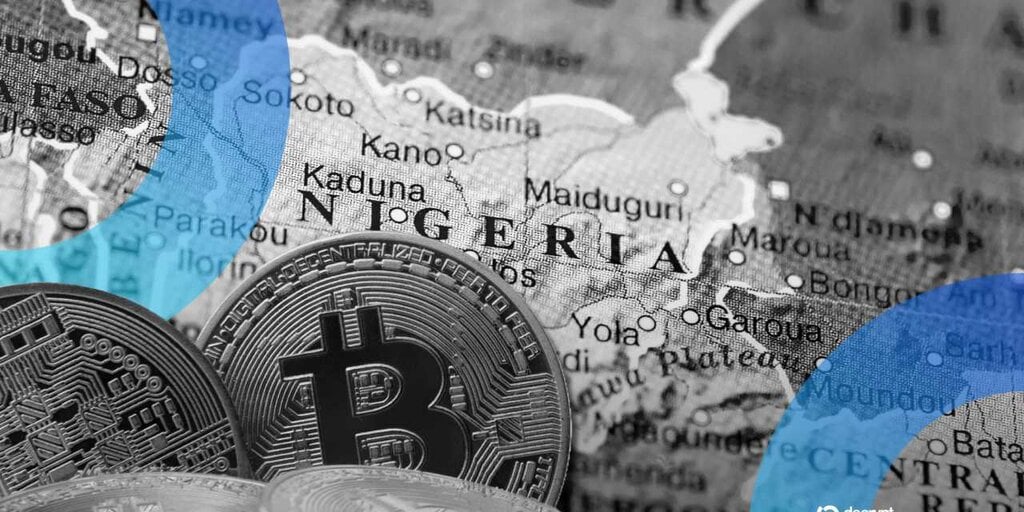In short
- The EFCC chairman of Nigeria has accused ‘rogue politicians’ of using cryptocurrency to hide corrupt wealth.
- Experts in the anti-corruption sector told Decrypt that the warnings of the EFCC are ‘not without merit’.
- Nigeria has seen a rapid approval of cryptocurrency, in addition to a parallel increase in fraud, with regulators who identify more than 30 Ponzi schedules with crypto.
Use corrupt politicians in Nigeria cryptocurrencies According to Ola Olukoyede, the executive chairman of the Economic and Financial Crimes Commission, to hide and cover up illegal wealth, according to Ola Olukoyede.
Speaking at an event that marks this year’s anti-corruption day this year, Olukoyede warned About the risks of the growing use of crypto, with a special focus on investment fraud.
Yet he also focused his attention on ‘rogue politicians’, who, according to the EFCC, are ‘connected’ to the rise of cryptocurrency fraud in Nigeria.
“Our findings showed that fraudulent politicians are already making plans and hiding their loot in cryptocurrencies to defeat the research carries of anti-corruption agencies,” he said. “Stolen funds and inexplicable wealth are run in portfolios and payments for services are made through this window.”
The EFCC did not give any further details in its press release and has not answered DecryptThe request for comments.
However, experts who worked within the anti-corruption sector in Africa agreed that crypto has become an element in political corruption, even if there is no consensus about the scale of the problem.
“At the moment there are no verifiable public data that quantifies the exact amount of inexplicable wealth of Nigeria’s political elite in the form of cryptocurrency,” said David Ugolor, executive director of the Africa Network for Environment and Economic Justice (Anej).
Spend against DecryptUgolor confirmed that the warnings of the EFCC are ‘not without merit’, although it would be ‘speculative to quote exact figures’.
He added that the Aneej has noticed in recent years “a growing pattern of digital asset use in illegal financial flows (IFFs), often facilitated by the pseudo-anonymity of crypto transactions and the fragmented nature of international regulations.”
Ugolor explained that Nigeria’s status as one of the largest peer-to-peer crypto markets in Africa, as well as are historical issues of transparency And weak disclosure of assets among political office holders makes it ‘plausible’ that crypto is increasingly used as a storage of illegal wealth.
Crypto in Nigeria
During the same event, the Governor of the Central Bank of Nigeria, Olayemi Cardoso, noted that the adoption of cryptocurrency has been exploded in the country, with “more than $ 56 billion in crypto-related transactions […] Recorded between July 2022 and June 2023. ”
However, this growth was accompanied by a parallel increase in fraud, as underlined by the financial stability report of the Central Bank 2024, last year an increase in financial fraud of 45% recorded.
About 70% of these cases are related to digital channels, such as crypto exchangeWhile Nigeria’s financial supervisors have identified more than 30 Ponzi schemes with cryptocurrencies.
Tackle crypto -corruption
Ugolor argued that different steps had to be taken to reduce the potential for the corrupt use of crypto, with the first acceptance of stronger regulatory frameworks.
“Nigeria must develop a balanced approach that promotes innovation and at the same time maintains AML/CFT -compliance,” he explained. “This includes licenses and monitoring of virtual assetroviders.”
Also important will be cross-border cooperation, in which Ugolor Nigeria advises to strengthen ties with international law enforcement agencies such as Interpol, while more use is also made of crypto-in-lighting companies, such as chain analysis and elliptical.
One of the most vital elements will evoke the political will and means to combat corruption, and for Ugolor this must include the disclosure of all the assets of politicians, including cryptocurrencies.
“Politicians and civil servants must be obliged to explain digital assets under a revised disclosure regime,” he said, explained that this would close a Maas in the current reporting systems.
Finally, he added that he would like to see NGOs such as Aneej and the EFCC work closer together, as well as with regulators such as the SEC and the Central Bank of Nigeria.
Such parties, he concludes, “must work together with the crypto sector to establish white list of whitelists, suspicious activity flags and channels for whistleblowers.”
Daily debrief Newsletter
Start every day with the top news stories at the moment, plus original functions, a podcast, videos and more.



